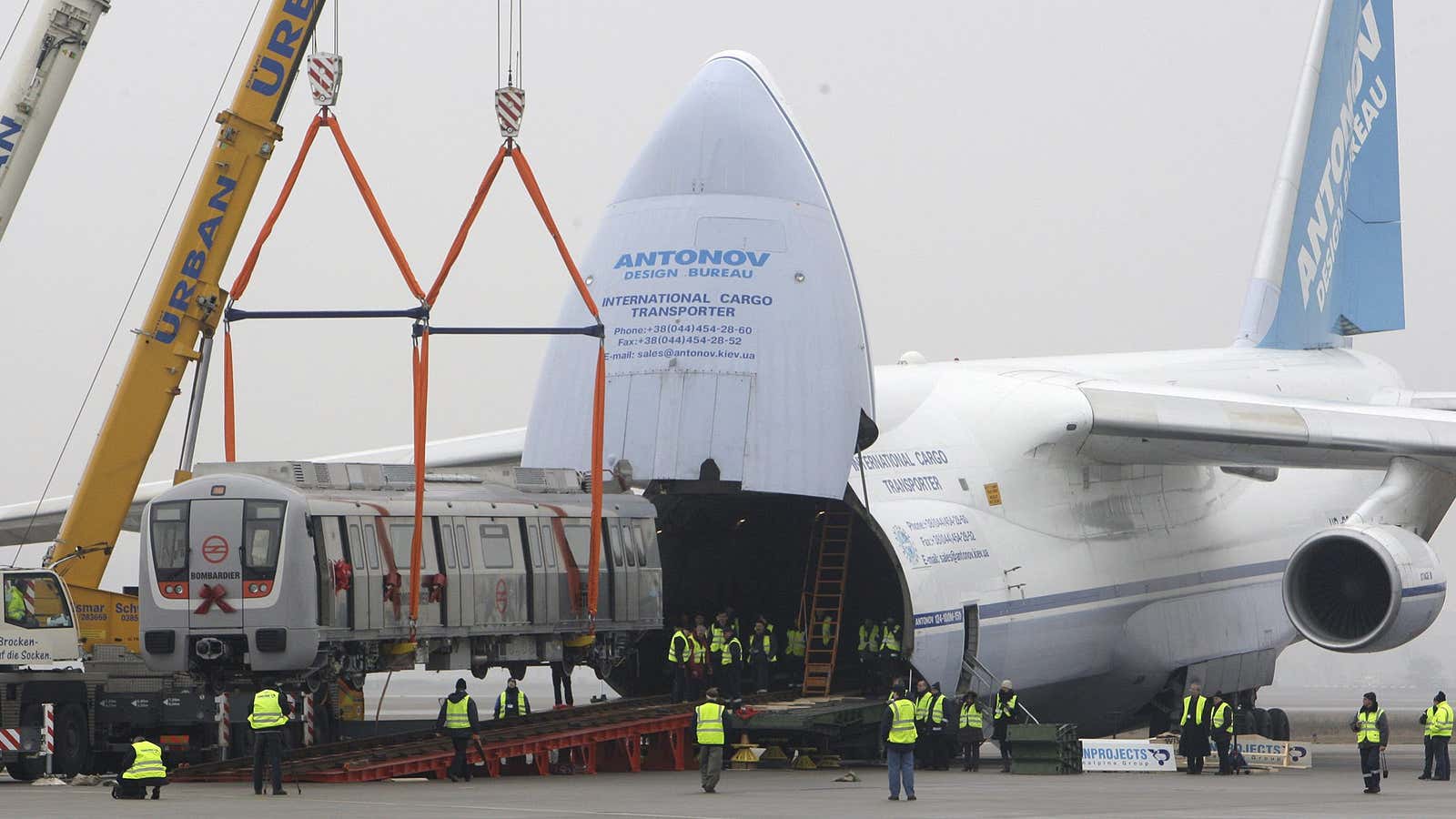The Ukrainian aircraft manufacturer Antonov makes the biggest cargo plane in the world: the An-124. Russia’s invasion of Ukraine may soon render the behemoth jets inoperable as they are starved of spare parts and maintenance usually found at Antonov Airport near Kyiv.
The An-124, which can carry up to 165 tons of freight and comes equipped with two onboard cranes for loading cargo, is often the only option for transporting oversized loads by air. (A standard Boeing 747 freighter, by comparison, can only carry 125 tons of freight, and its design makes it harder to fit truly massive objects onboard.) The An-124 fills a crucial civilian cargo niche, carrying wind turbines, satellites, Atlas V rockets, fire engines, trains, and helicopters. Without it, many large cargo loads would have to travel on trains or ships, facing lengthy delays. It also plays a key military role; NATO used one of its two An-124s to fly combat vehicles into Lithuania yesterday, and the Russian air force relies on the freighter for its heavy transport.
Just 55 An-124s were built between 1982 and 2014, as a collaboration between Ukrainian and Russian manufacturers. By 2019, 26 remained in civilian use, but the aging giants require regular specialized maintenance.
Mounting economic sanctions against Russia are likely to prevent Western airlines from getting spare parts and maintenance from any Russian facility. And the Russian invasion has made it impossible to service An-124s in Ukraine. The loss of An-124 capacity would be a blow to industries that move large payloads, like the wind energy sector, according to Ryan Peterson, CEO of the logistics company Flexport.
Russian forces attack Antonov Airport
Antonov Airport, the home base of seven An-124s and a repository of spare parts, has been under siege since Feb. 24. Russian forces have destroyed buildings, airplane hangers, and some aircraft. Although Antonov Airlines managed to move five of its An-124s ahead of the Russian invasion—and airlift a shipment of spare parts to France—at least two remain stuck on the ground at Antonov Airport.
Russian forces also destroyed the world’s one and only An-225, a larger cousin to the An-124. Originally designed to transport Soviet space station components, it was the largest cargo plane ever built. Ukrainian officials estimate it will cost over $3 billion to rebuild the flagship jet.
Russia sanctions and airspace closures complicate air freight
The supply chain impacts of the Russian invasion go beyond An-124s. The EU and Canada have closed their airspace to Russian planes, reducing the already limited fleet of cargo planes available to carry freight into Europe and North America. Meanwhile, many cargo airlines are avoiding flying over Russia and Ukraine, which adds time and fuel costs to cargo flights between Asia and Europe.
The disruptions are yet another factor driving up the cost of air freight, which in turn pushes up the prices of every good that gets transported by air.
